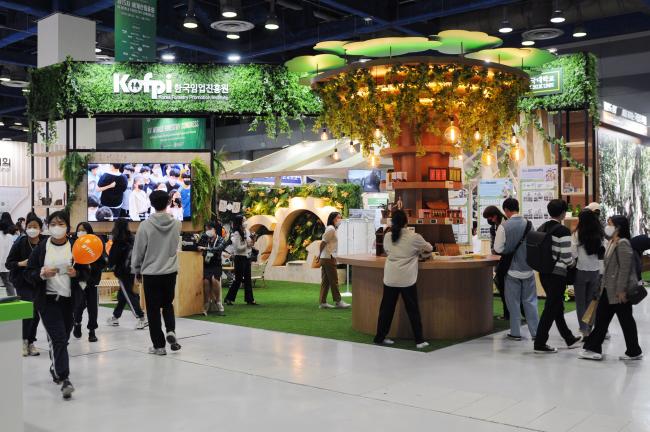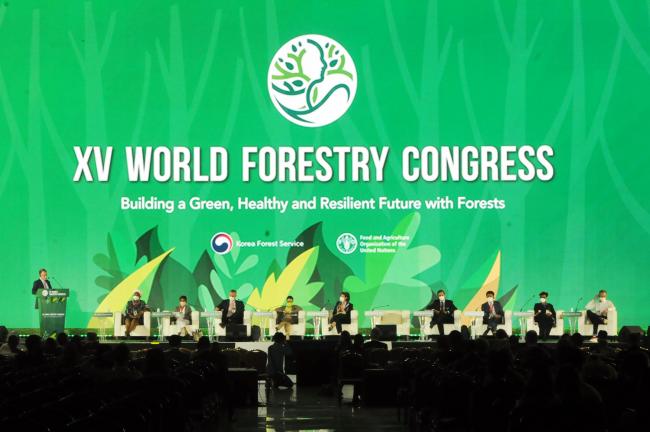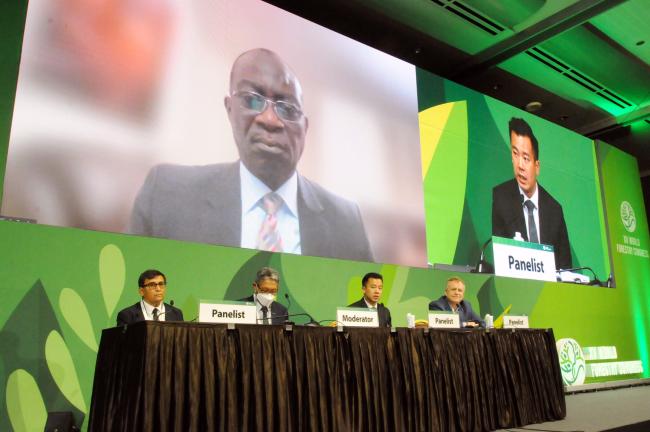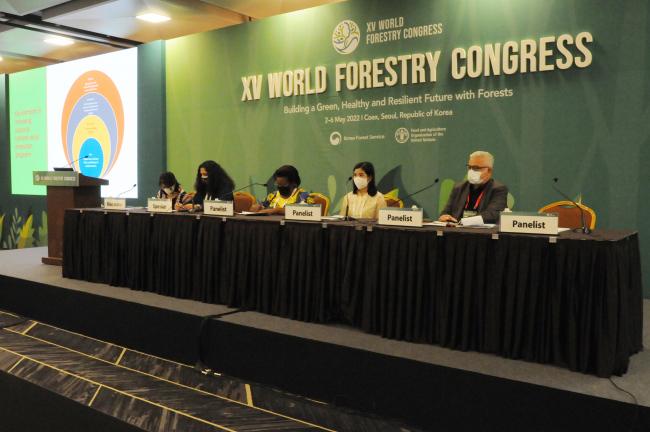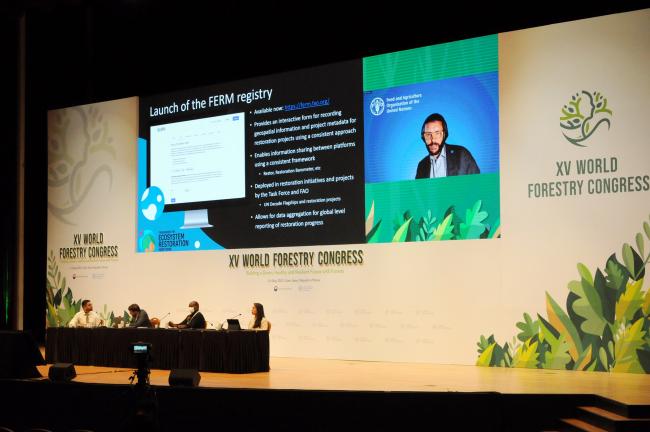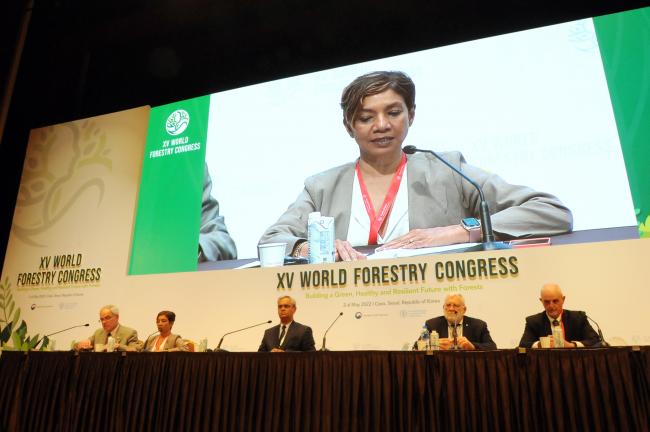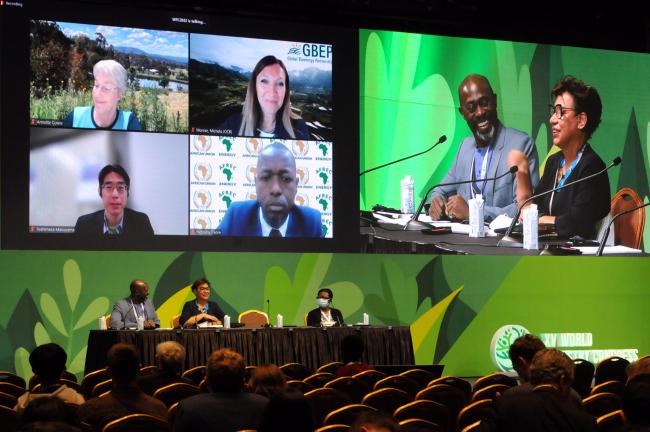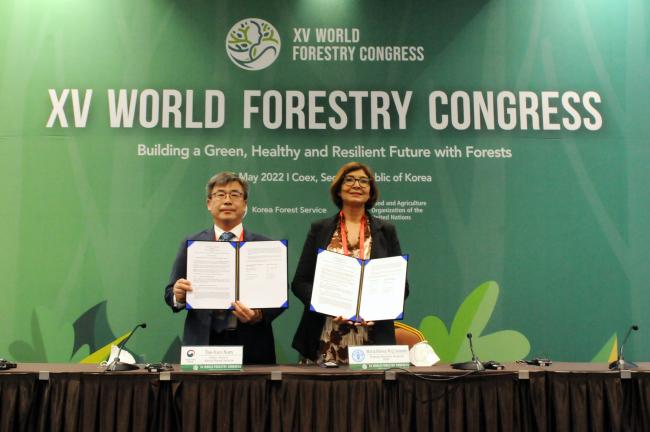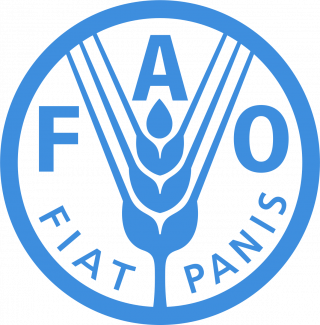On the third day of XV WFC, participants continued to engage in a number of different events, meetings, and exhibits, moving throughout Seoul’s impressive COEX conference center.
In a morning plenary session, panelists discussed conditions necessary for increasing the use of forest products so that they contribute to reducing emissions and storing carbon.
Participants then met in parallel sessions to continue discussions on the six sub-themes of the Congress.
Under Sub-theme 1, participants explored efforts to strengthen forest and land governance, and develop verification systems to halt deforestation and forest degradation.
Under Sub-theme 2, participants discussed how to leverage nature-based solutions for climate change mitigation and adaptation, including the role of Indigenous Peoples and local communities as custodians and managers of forest lands and other ecosystems.
Under Sub-theme 3, participants looked at scaling up access to finance by smallholders and their organizations to promote sustainable landscapes.
Under Sub-theme 4, participants addressed forests for social cohesion and learned about how forest and farm producer organizations can facilitate social inclusion, keep young farmers interested, and improve the sustainability of rural and national development.
Under Sub-theme 5, participants discussed progress and technological innovations from the Task Force on Monitoring working in support of the UN Decade on Ecosystem Restoration, including examples of successful initiatives and country experiences in restoration monitoring, and witnessed the launch of the Framework for Ecosystem Restoration Monitoring registry.
Under Sub-theme 6, participants addressed cross-sectoral collaboration and partnerships involving different stakeholders in the context of how these interactions can successfully promote and implement sustainable forest management.
During an afternoon special event, participants also explored the role that forestry can play in creating a greener post-pandemic future, including how healthy and resilient forests can form part of COVID-19 response and recovery plans. In a parallel session, participants considered the role of sustainable bioenergy in the energy transition towards net zero emissions.
An all-day special event took place alongside the main proceedings, addressing wildfire management, highlighting the need to involve all sectors impacted by fires, and not just forestry. Discussions centered on how to raise public awareness of the importance of fire management, the need for engaging local communities in shared risk governance, and innovative technologies for fire management.
Following this, the Korean Forest Service and FAO launched the Assuring the Future of Forests with Integrated Risk Management (AFFIRM) Mechanism, a new global platform for addressing multiple forest risks, including wildfire, in a more holistic and integrated way.
All ENB photos are free to use with attribution. For WFC 2021, please use: Photo by IISD/ENB | Diego Noguera.
To receive free coverage of global environmental events delivered to your inbox, subscribe to the ENB Update newsletter.
Wood: the most ancient raw material taking us to the future
Sub-theme Sessions

José Filadelfo Martínez, Voluntary Partnership Agreements, Honduras, and Moderator Chencho Norbu, Asian Forest Cooperation Organization Secretariat
The Role of Forests in a Post COVID-19 Recovery: Re-imagining the Future of Forests
Sustainable Forests and Green Energy: Sustainable Bioenergy for Energy Transition Towards Net Zero Emissions

Annette Cowie, New South Wales Department of Primary Industries, Australia, presents remotely during the special event on Sustainable Forests and Green Energy: Sustainable Bioenergy for Energy Transition Towards Net Zero Emissions.

